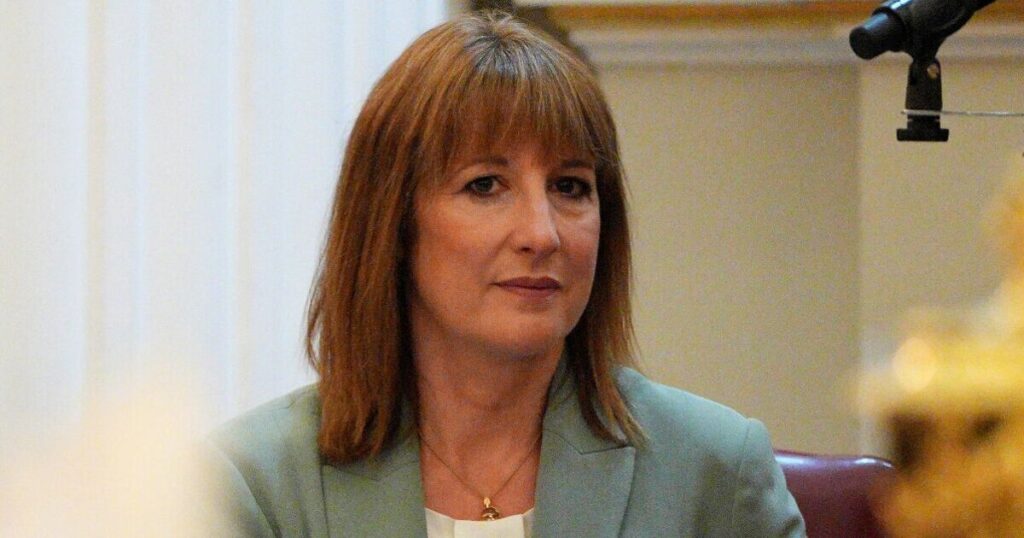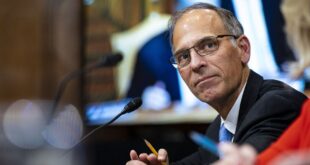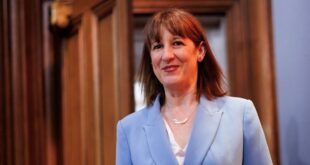
Rachel Reeves will likely be forced to raise taxes to plug a £51billion black hole in the public finances, a think tank has warned. The National Institute of Economic and Social Research (NIESR) said weaker-than-expected economic activity, U-turns on welfare cuts and higher than expected borrowing mean the Chancellor is on track to miss one of her fiscal rules by £41.2bn in 2029-30.
NIESR cautioned Ms Reeves faces an “impossible trilemma” of trying to meet her fiscal rules while meeting spending commitments and upholding a manifesto pledge not to raise taxes. Including the need to rebuild the fiscal buffer of just under £10bn which has been wiped out, the Chancellor will have to find over £51bn, according to the think tank.
NIESR’s £51bn figure includes £14.3bn. This is the difference between an Office for Budget Responsibility forecast issued in March for total Government spending of £1,202bn and the actual amount – £1,216.3bn.
The Government’s failure to pass planned welfare reforms adds extra spending of £13.7bn while U-turning on scrapping the Winter Fuel Allowance adds £1.5bn.
Weaker growth in output and employment compared to OBR forecasts suggests lower tax revenues and higher transfer payments, such as unemployment benefits, in future. NIESR found this would account for a £22.2bn shortfall in 2028-29.
Adding all the above up gives a difference between NIESR’s August forecast and the OBR’s March forecast of £51.7bn.
It covers the difference between the £9.9bn current surplus for 2028-29 the Chancellor had based on an OBR forecast in March and the current deficit of £41.2bn NIESR finds now.
Professor Stephen Millard, NIESR’s deputy director for macroeconomics, said: “Things are not looking good for the Chancellor, who will need to either raise taxes or reduce spending or both in the October budget if she is to meet her fiscal rules.”
NIESR said if the Government moved to extend the income tax threshold beyond 2028, it would bring in around £8.2bn – well below what is needed.
To plug the £51bn black hole would require a rise in the basic and higher rates of income tax by five percentage points, according to the think tank.
NIESR urged the Government to look at addressing the public finance woes by building a “large fiscal buffer via a moderate but sustained increase in taxes”.
It said: “This will help allay bond market fears about fiscal sustainability, which may in turn reduce borrowing costs. It will also help to reduce policy uncertainty, which can hit both business and consumer confidence.”
A Treasury spokesperson said: “The OBR will publish an updated medium-term forecast alongside the Autumn Budget – we will not speculate on their forecast.
“As set out in the Plan for Change, the best way to strengthen public finances is by growing the economy – which is our focus. Thanks to our planning reforms, the OBR has said that the economy is expected to grow by the end of the decade.”
The Chancellor has set herself two fiscal rules. The first, “stability rule”, ensures day-to-day spending is matched by tax revenues so the Government only borrows to invest. The second, “investment rule”, requires the Government to reduce net financial debt as a share of the economy.
Shadow Chancellor Sir Mel Stride said: “Experts are warning Labour’s economic mismanagement has blown a black hole in the nation’s finances which will have to be filled with more tax rises – despite Rachel Reeves saying she wouldn’t be back for more taxes. Labour will always reach for the tax rise lever because they don’t understand the economy.”
 Latest World Breaking News Online News Portal
Latest World Breaking News Online News Portal






